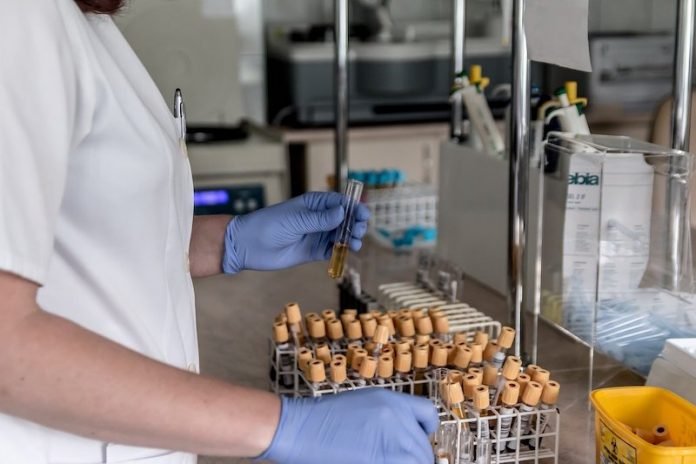
In a new study, researchers have found that injury to endothelial cells—the cells lining blood vessels—may be a key driver of COVID-19 severity and death.
The findings may help to explain the mysterious blood clotting seen in some patients with COVID-19, a condition associated with the most severe cases and death.
The discovery suggests that doctors could both test patients for endothelial cell injury, known as endotheliopathy, and mitigate it with drugs to improve patient outcomes.
The research was conducted by a team at Yale.
The researchers studied 68 patients admitted to Yale New Haven Hospital with COVID-19, including 48 critically ill patients, 20 non-critically ill patients, and 13 non-hospitalized healthy controls, looking at markers for endothelial cell (EC) injury and comparing those to illness severity and survival.
They found that markers for EC injury were significantly elevated in critically ill patients and were above the normal range in 80% of non-critically ill patients.
Moreover, the elevated markers were significantly associated with lower rates of hospital discharge and higher likelihood of death.
Previous studies had determined that patients with COVID-19 are at high risk for blood clots and strokes—with one Dutch study finding that 31% of ICU patients who were already on preventive doses of blood thinners had blood clot complications, a number it called “remarkably high.”
In New York, doctors at Mt. Sinai have reported a high number of young stroke patients who tested positive for COVID-19.
Autopsy reports from two dozen Black patients who died from COVID-19 at LSU Health found that all had blood clots in the lungs.
This study is the first to measure specific markers of endothelial injury in the blood and demonstrate that endotheliopathy is common in COVID-19, especially when patients are critically ill.
The team says doctors treating patients with COVID-19 are not routinely testing for injury to the endothelial cells, but that these findings indicate it could be beneficial to patients to add this to the standard of care.
Already, any hospitalized patients with COVID-19 are given at least a low dose of blood thinner.
Their new data suggest that other drug interventions that protect the endothelial cells may afford further benefit in the treatment of patients with COVID-19.
The researchers have received approval to begin enrolling patients in a clinical trial at Yale to further study the connection between inflammation, blood vessel injury, and COVID-19 outcomes.
One author of the study is Dr. Alfred Lee, an associate professor of medicine (hematology) and director of the hematology/oncology fellowship program at Yale.
The study is published in The Lancet Haematology.
Copyright © 2020 Knowridge Science Report. All rights reserved.



